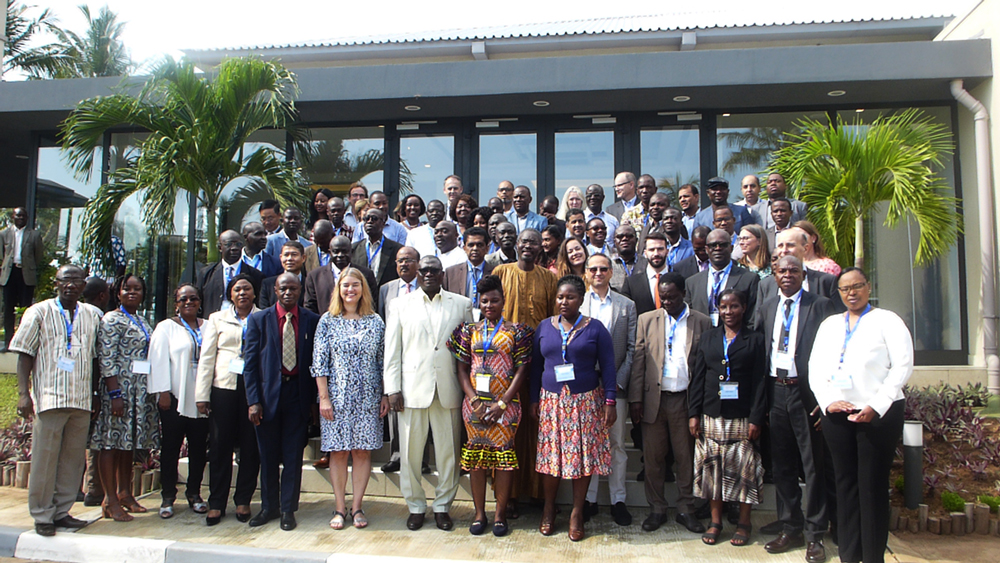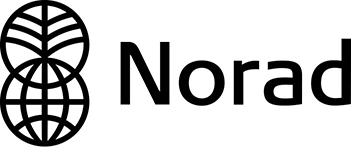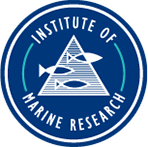Showcasing benefits of the ecosystem approach for sustainable fisheries and a healthy marine environment
*This news item is also available in French
5-6 November | Cotonou, Benin. During the first week of November, EAF-Nansen Programme's partners and key stakeholders are gathering at the 2019 Forum in Cotonou, Benin. Under the theme Sustainability of Fisheries in the Context of EAF, the meeting will focus on promoting the Ecosystem Approach to Fisheries (EAF), and how to achieve sustainable fisheries management practices while safeguarding healthy marine ecosystems. One session will be dedicated to sharing lessons learned from implementation of EAF and how improved monitoring can be achieved. Another session will be focused on small pelagic fisheries.
 |
| Participants at the EAF-Nansen Programme Forum 2019, in Cotonou, Benin ©FAO |
Since 2017, the EAF-Nansen Programme has been building on the work carried out for over 40 years in its earlier phases. The Programme is executed by the Food and Agriculture Organization of the United Nations (FAO) in close collaboration with the Institute of Marine Research (IMR) of Bergen, Norway, and with financial support from the Norwegian Agency for Development Cooperation (Norad).
The current phase of the Programme is unique in the sense that it directly addresses the greatest challenge so far – the concurrent impacts of human activities on marine environments and fishery resources. In order to achieve this, a series of efforts under three themes are being executed in partnership with a large and diverse array of partner institutions in 31 countries where the Programme operates, as well as with regional and international partners, such as the Regional Fisheries Bodies around Africa. The three themes of the Programme are: fishery research for management, evidence-based fisheries management, and capacity to sustainably manage fisheries.
The Forum has been one of key activities during the recent phases of the Nansen Programme."We are eager to host the 2019 EAF-Nansen Forum, which is the first one in the current phase of the Programme," said Merete Tandstad, coordinator of the Programme at FAO. "Lessons learned from previous years, combined with recent research developments and overall achievements of the Programme so far have allowed us to develop a Forum agenda to showcase how national and regional partners are embracing the ecosystem approach, as well as to shares lessons on how to implement these strategies best", added Ms. Tandstad.
Small pelagic resources and fisheries are key to ensuring food security and livelihoods of coastal communities in the regions included in the Programme, and thus the 2019 Forum will dedicate a special session to highlighting specific concerns in relation to the sustainability of these fisheries.
"The contributions of the EAF-Nansen Programme towards improving knowledge on the state of fish stocks and introducing a practical way to implementing the ecosystem approach through fisheries management plans have been of vital importance to the Central Eastern Atlantic region (CECAF)," underlined Ndiaga Gueye, Secretary of the Fishery Committee for the Eastern Central Atlantic. Mr. Gueye also recalled that the recent 22nd session of CECAF urged continuous collaboration between CECAF and the EAF-Nansen Programme.
Overall, the Forum is an opportunity to report on recent and upcoming activities, share experiences and lessons learnt, and discuss best practices or strategies concerning the EAF-Nansen Programme. Additionally, participants are invited to exchange ideas for possible future collaborations. The outcomes of the 2019 EAF-Nansen Forum will be available on the website following the event.
Useful links to information materials:
- The EAF-Nansen Programme (2017-2021)
- The EAF-Nansen Programme Science Plan
- Fishery and Oceanographic Research Vessel the R/V Dr Fridtjof Nansen
Contact details:



